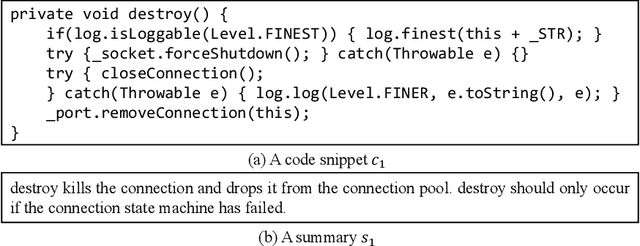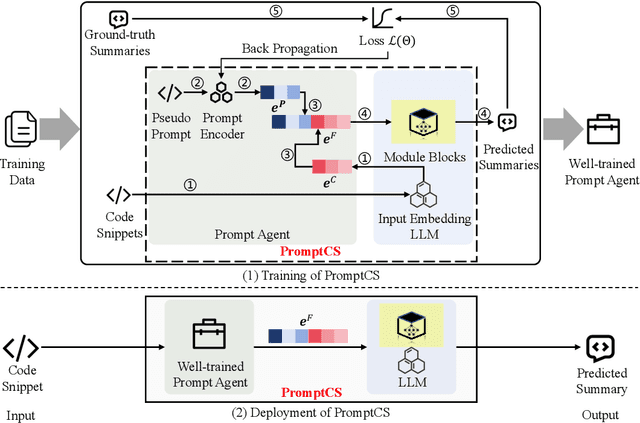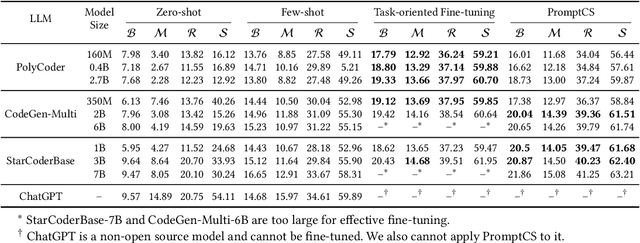A Prompt Learning Framework for Source Code Summarization
Paper and Code
Dec 26, 2023



(Source) code summarization is the task of automatically generating natural language summaries for given code snippets. Such summaries play a key role in helping developers understand and maintain source code. Recently, with the successful application of large language models (LLMs) in numerous fields, software engineering researchers have also attempted to adapt LLMs to solve code summarization tasks. The main adaptation schemes include instruction prompting and task-oriented fine-tuning. However, instruction prompting involves designing crafted prompts for zero-shot learning or selecting appropriate samples for few-shot learning and requires users to have professional domain knowledge, while task-oriented fine-tuning requires high training costs. In this paper, we propose a novel prompt learning framework for code summarization called PromptCS. PromptCS trains a prompt agent that can generate continuous prompts to unleash the potential for LLMs in code summarization. Compared to the human-written discrete prompt, the continuous prompts are produced under the guidance of LLMs and are therefore easier to understand by LLMs. PromptCS freezes the parameters of LLMs when training the prompt agent, which can greatly reduce the requirements for training resources. We evaluate PromptCS on the CodeSearchNet dataset involving multiple programming languages. The results show that PromptCS significantly outperforms instruction prompting schemes on all four widely used metrics. In some base LLMs, e.g., CodeGen-Multi-2B and StarCoderBase-1B and -3B, PromptCS even outperforms the task-oriented fine-tuning scheme. More importantly, the training efficiency of PromptCS is faster than the task-oriented fine-tuning scheme, with a more pronounced advantage on larger LLMs. The results of the human evaluation demonstrate that PromptCS can generate more good summaries compared to baselines.
 Add to Chrome
Add to Chrome Add to Firefox
Add to Firefox Add to Edge
Add to Edge